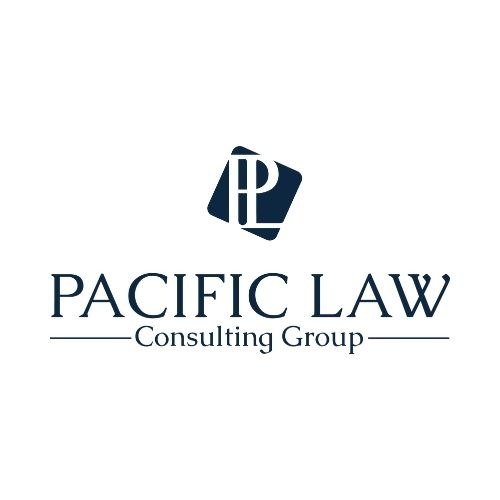Best Corporate Governance Lawyers in Lima
Share your needs with us, get contacted by law firms.
Free. Takes 2 min.
List of the best lawyers in Lima, Peru
About Corporate Governance Law in Lima, Peru
Corporate governance refers to the framework of rules, practices, and processes by which companies are directed and controlled. In Lima, Peru, corporate governance plays a vital role in promoting transparency, accountability, and fairness within corporations, especially those listed on the Lima Stock Exchange or operating in regulated sectors. Local standards are increasingly aligned with international best practices due to economic growth and foreign investment, making compliance essential for both Peruvian and international businesses operating in the region.
Why You May Need a Lawyer
Legal assistance is often crucial in the field of corporate governance. Businesses and individuals may encounter issues such as establishing corporate structures, drafting shareholder agreements, ensuring regulatory compliance, resolving conflicts of interest, or dealing with allegations of mismanagement. Lawyers help ensure decisions are made within the legal framework, minimize the risk of disputes, and safeguard the interests of companies, shareholders, directors, and other stakeholders. Whether forming a new entity, expanding operations, or navigating mergers and acquisitions, legal guidance is key to navigating Peru’s regulatory environment.
Local Laws Overview
Peru’s corporate governance regulations are influenced by several laws and regulatory bodies. The principal legislation includes the General Corporations Law (Ley General de Sociedades), which sets out the foundational legal framework for corporate organization and governance. Public companies are further regulated by the Superintendencia del Mercado de Valores (SMV), which enforces corporate governance codes and disclosure obligations. The Code of Good Corporate Governance for Peruvian Companies provides voluntary principles and recommendations, especially for companies listed on the Lima Stock Exchange. Other relevant areas include anti-corruption laws, conflict-of-interest regulations, and transparency requirements.
Frequently Asked Questions
What is corporate governance, and why is it important in Peru?
Corporate governance refers to the system by which companies are managed and controlled, balancing the interests of shareholders, directors, management, and other stakeholders. In Peru, strong governance enhances investor confidence, promotes ethical business conduct, and supports sustainable economic growth.
Does my company have to comply with corporate governance rules in Lima, Peru?
All companies must abide by the General Corporations Law. Publicly listed companies and those in regulated sectors are subject to additional governance standards, disclosures, and oversight by the SMV.
What are the key responsibilities of a board of directors in Peru?
The board oversees the management of the company, ensures compliance with laws and bylaws, approves major corporate actions, supervises financial reporting, and represents the company in dealings with third parties.
Can shareholders hold directors accountable for misconduct?
Yes, shareholders have the right to seek accountability through shareholder meetings, the legal system, and, in certain cases, by initiating lawsuits for damages resulting from directors’ wrongful actions.
What is the role of the Superintendencia del Mercado de Valores (SMV)?
The SMV regulates and supervises companies in the securities market, ensuring compliance with corporate governance codes, promoting transparency, and protecting investor interests.
Are there requirements for diversity or independent directors on Peruvian boards?
While not strictly required by law, the Code of Good Corporate Governance recommends the inclusion of independent directors and encourages diversity to improve decision-making and company performance.
Do I need to disclose related-party transactions?
Publicly listed companies and those regulated by the SMV must disclose related-party transactions, follow fairness procedures, and obtain approval from the board or shareholders as appropriate.
What are the reporting obligations for companies in Peru?
Companies must keep accurate accounting records, prepare annual financial statements, and report key corporate activities. Public companies have additional reporting duties under SMV rules.
How are conflicts of interest addressed in Peruvian corporate law?
Directors and officers must disclose potential conflicts and abstain from participating in decisions where they have personal interest. Failure to do so may result in liability for damages.
What are the consequences of failing to comply with corporate governance laws?
Non-compliance can result in legal liability for directors, fines, reputational harm, suspension from the securities market, or even criminal proceedings in cases involving fraud or corruption.
Additional Resources
- Superintendencia del Mercado de Valores (SMV): Oversees market compliance and issues guidelines on corporate governance. - Instituto Peruano de Gobernanza Corporativa: Provides training and information on best practices. - Lima Stock Exchange: Publishes guidance for listed companies and investors. - Ministry of Justice and Human Rights: Offers information on Peruvian corporate and commercial law. - Chambers of Commerce in Lima: Offers business support services and referrals to legal specialists.
Next Steps
If you need legal assistance with corporate governance in Lima, begin by identifying your specific needs, such as company formation, corporate compliance, or dispute resolution. Gather relevant documents like company bylaws, shareholder agreements, meeting minutes, and official correspondence. Research and contact a specialized corporate lawyer with experience in Peruvian law and a strong background in governance matters. Prepare a list of questions and concerns before your consultation. The right legal partner can help clarify your obligations, protect your interests, and guide you through the complexities of corporate governance in Peru.
Lawzana helps you find the best lawyers and law firms in Lima through a curated and pre-screened list of qualified legal professionals. Our platform offers rankings and detailed profiles of attorneys and law firms, allowing you to compare based on practice areas, including Corporate Governance, experience, and client feedback.
Each profile includes a description of the firm's areas of practice, client reviews, team members and partners, year of establishment, spoken languages, office locations, contact information, social media presence, and any published articles or resources. Most firms on our platform speak English and are experienced in both local and international legal matters.
Get a quote from top-rated law firms in Lima, Peru — quickly, securely, and without unnecessary hassle.
Disclaimer:
The information provided on this page is for general informational purposes only and does not constitute legal advice. While we strive to ensure the accuracy and relevance of the content, legal information may change over time, and interpretations of the law can vary. You should always consult with a qualified legal professional for advice specific to your situation.
We disclaim all liability for actions taken or not taken based on the content of this page. If you believe any information is incorrect or outdated, please contact us, and we will review and update it where appropriate.











